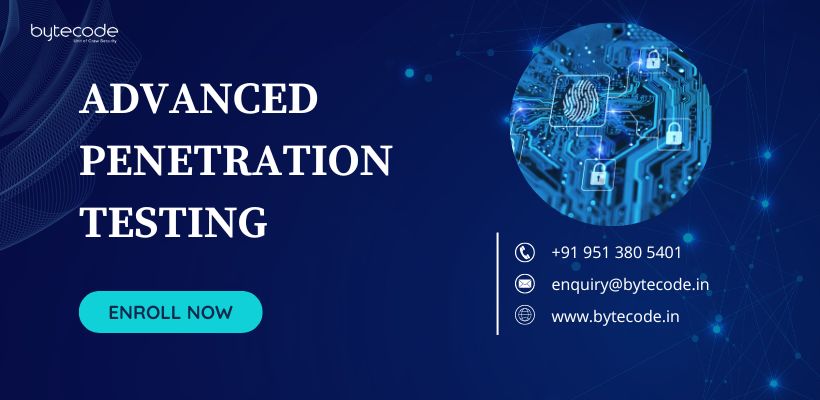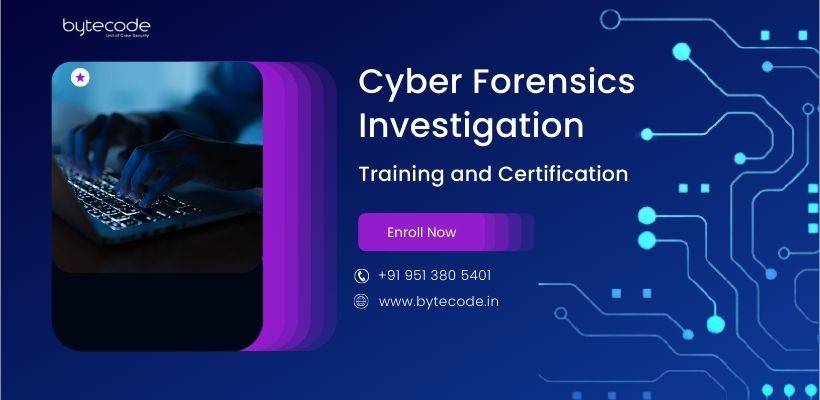Internet of Things IoT Training Course
Bytecode Cyber Security offers a complete security assessment and penetration testing through our unique offering of Attacker Simulated Exploitation for Internet of Thing (IoT) solutions. This involves our security researchers compromising your system and devices with an attacker’s mindset, thus revealing any possible security holes that might lead to a security breach of your IoT device. In most cases even though devices share similar types of vulnerabilities, we often devote our time to unique ways of exploitation, and into things such as combining two lesser critical vulnerabilities to result in a major
Students can attend classes from their homes. It takes less time to attend an online class. At the same time, various groups can attend online classes with bytecode Cyber Security From home.
IoT Training Course Module
MODULE 01 : Overview of Why IoT is so important
MODULE 02 : Introduction of IoT
MODULE 03 : Introduction to Sensor Network and Wireless protocol
MODULE 04 : Review of Electronics Platform, Production & Cost Projection
MODULE 05 : Conceiving a new IoT product- Product Requirement document for IoT
MODULE 06 : Introduction to Mobile app platform & Middleware for IoT
MODULE 07 : Machine learning for intelligent IoT
MODULE 08 : Analytic Engine for IoT
MODULE 09 : Iaas/Paas/Saas-IoT data, platform & software as a service revenue model
Who this IoT Pentesting Training course is for :
- Security test engineers prefer this course.
- Any IT security analysts, IT professional who wants to learn IOT Pentesting.
- Information system security architects.
- Cybersecurity analysts who want to understand IOT Pentesting.
- Product security analysts can do this course.
What is NEW in IoT Pentesting Training Course?
- Hardware-Based Exploitation
- Radio Security Analysis
- Attack and fault trees
- IoT ecosystem and penetration testing approaches
- Binary Reverse Engineering and Exploitation.
- Attack Surface Mapping
Our Related Course
Google Reviews
Frequently Asked Questions
What is the purpose of Internet of things Pentesting?
The principal aim of Internet of Things Penetration Testing is to evaluate, detect, and address any possible weaknesses inside a network of networked Internet-enabled devices, commonly known as IoT devices.
How do I become IoT Certified?
People who want to become certified in the Internet of Things (IoT) can sign up for specific certification programs that are provided by different companies, organizations, and educational institutions. For those wishing to become accredited at different levels in the Internet of Things industry, a variety of credentials are available (IoT). The Certified IoT Security Professional, Certified IoT Developer, Certified IoT Engineer, and Certified IoT Technologist are among these certifications. A thorough final test, practical application, and academic content are typically included in certification courses.
To know more about the same, give us a call at +91-9513805401 or visit our official website today.
Is coding needed for IoT?
Yes, in the context of the Internet of Things (IoT), using code is essential. Programming languages like HTML, CSS, JavaScript, Java, Python, C++, and C# are frequently used in the creation of Internet of Things applications, gadgets, and services. These programming languages are employed in the creation of services and apps that provide control over, interaction with, and gathering of data from connected devices.
What does pen testing involve?
Penetration testing also called pen testing or ethical hacking is the practice of testing a computer system, network, or web application to find security vulnerabilities that an attacker could exploit.
How long is IoT course?
An Internet of Things (IoT) course's duration could change depending on the subject matter and instructional level. A foundational course on the Internet of Things (IoT) might last anything from a few hours to several weeks, while more advanced courses can take up to a whole academic year or a semester.
Is IoT good career?
For those who are able to successfully navigate through the complex and challenging environment that it is linked with, penetration testing can be regarded as a good career option. Finding vulnerabilities inside an IT architecture that can result in financial rewards requires a significant time and skill commitment to become a Bug Bounty hunter.
In Delhi NCR, are you interested in pursuing a rewarding career in IoT penetration testing? Join Bytecode Security to advance in your interrupted career and get information security mastery. You can even enroll in Bytecode Security's full 1-year diploma program in cyber security, which will fundamentally alter your perspective on the field by requiring your undivided attention.
Call us now at +91-9513805401 and initiate a chat with our highly skilled educational counselors.
What is IoT salary in India?
A person's salary in India who works in the Internet of Things (IoT) sector depends on a number of factors, such as their experience level, where they live, and the particular duties associated with their line of work. An Internet of Things (IoT) specialist in India typically makes between ₹3 lakhs and ₹10 lakhs per year.
Is pen testing hard?
Generally speaking, pen testing is difficult on many levels. Whether they think they are not important enough to become a target, or they rely on their permanent IT management to take care of security, until they are hacked, a penetration test seems to them to be a waste of money and time.
Is IOT Pentesting a good career?
If your good people would hire your services. Bounty hunting is also a good way of making money but it requires time and knowledge for exploit development. Pen testers are still required to find new exploits and patch up the security. But honestly don't seek penetration testing as a career.
Can IoT be hacked?
Yes, IoT devices can be hacked. The question of whether a successful attack can be launched against a particular target may get a different answer. Given enough time, though, a skilled, determined hacker with physical or remote access to an IoT system can find a way to compromise it.
Is pen testing stressful?
I encounter many techies who love the science of penetration testing. They're captivated by the technology stack, the vulnerabilities, and the tools at their disposal. But, at the same time, they find the task of pen testing itself aggravating and stressful. A real pain.
Is IoT hard to study?
Yes, this subject is sometimes described as difficult to understand because it requires a strong understanding of coding and programming concepts in order to carry out complex command and algorithm sequences. However, engineering and medicine are frequently seen as more prestigious than cybersecurity, including pentesting, in terms of the hierarchy of difficult academic areas.
You may honestly enroll in Bytecode Security, the Best Cybersecurity Training Institute in Delhi if you have also made up your decision to master the various IoT Penetration Testing procedures in Delhi NCR. Give our highly qualified educational consultants a call at +91-9513805401 to speak with someone who can help you with every stage of the training and admissions process.
What are examples of the Internet of things?
The following are a few well-known examples of Internet of Things (IoT) devices:
- Connected appliances.
- Smart home security systems.
- Autonomous farming equipment.
- Wearable health monitors.
- Smart factory equipment.
- Wireless inventory trackers.
- Ultra-high-speed wireless internet.
- Biometric cybersecurity scanners.
What are the skills required for IoT engineer?
The subsequent abilities are deemed essential for IoT engineers:
- Programming and Networking Skills
- Knowledge of IoT Protocols
- Cloud Computing
- Security
- Data Analytics
- Project Management
What is the job role for IoT?
The employment duties related to the Internet of Things (IoT) will depend on the particular needs of the company. In summary, experts in the Internet of Things (IoT) domain are in charge of designing, building, testing, and deploying intelligent gadgets, as well as connecting them to the Internet and developing software to facilitate their operation. They must also ensure that data is collected, stored, and processed in a secure manner. Moreover, data analysis and its utilization to provide useful and actionable insights may fall under the purview of those employed in the Internet of Things (IoT).












